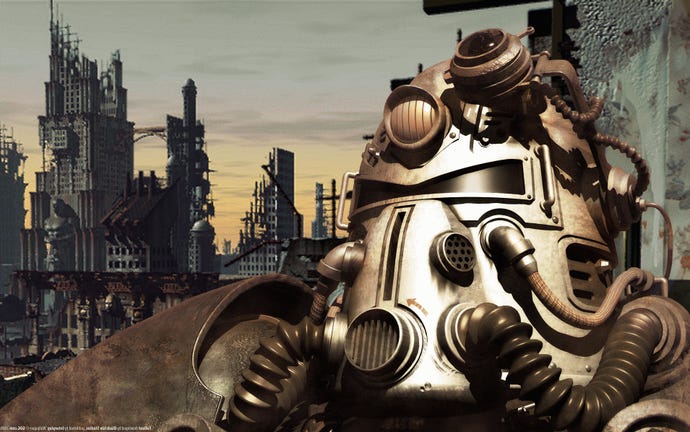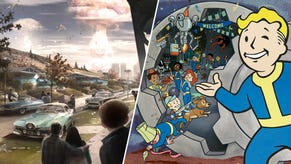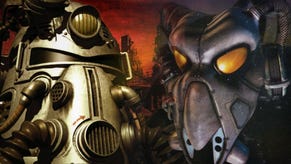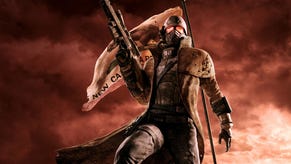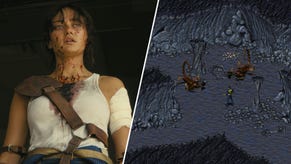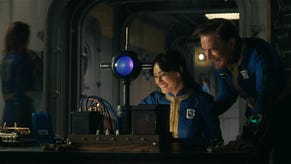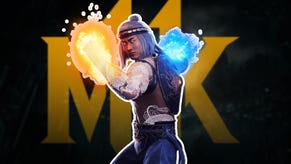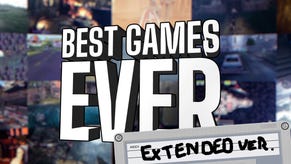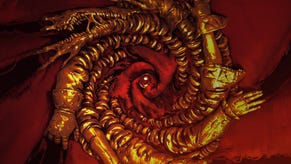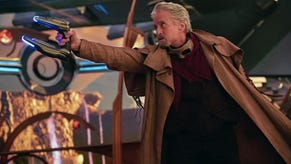The Top 25 RPGs of All Time #7: Fallout
Wander the wasteland and rediscover a keystone in RPG history.
This article first appeared on USgamer, a partner publication of VG247. Some content, such as this article, has been migrated to VG247 for posterity after USgamer's closure - but it has not been edited or further vetted by the VG247 team.
Fallout 76 has been a boondoggle for Bethesda. An online experience that was supposed to keep players satisfied for years to come has stumbled and fallen, leaving a development team to try and desperately patch it up. As part of a makepeace on Bethesda's part, the publisher gave all owners of Fallout 76 the original Fallout, Fallout 2, and Fallout Tactics: Brotherhood of Steel. Together, these three games represent the narrative bedrock of Fallout, establishing themes, characters, and organizations that stretch into Bethesda's modern Fallout today. So while Fallout 76 is struggling, at least players can enjoy the original Fallout, a game that has aged visually, but still stands as one of the best role-playing experiences of all-time.
Fallout was a grab bag of various elements. It began development as a sequel to Wasteland , a seminal 1988 post-apocalyptic RPG developed by Brian Fargo, but by the time development was in full swing Interplay, no longer had the rights to the series. So it became Fallout, a story with a similar setting but a darker sense of humor. . Both Wasteland and Fallout are obviously heavily influenced by the Mad Max and its heavy metal post-apocalyptic desert setting. One of the first armor sets you get in Fallout looks like it's straight of Road Warrior, and the friendly canine companion named Dogmeat is a reference to Max's dog from that same film.
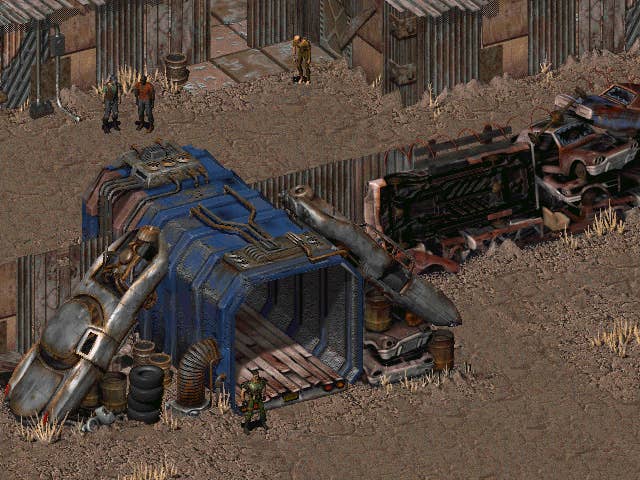
Elsewhere, Fallout was meant to be a translation of the GURPS pen-and-paper role-playing experience-Interplay even licensed GURPS from its owner Steve Jackson Games-before switching to its own similar character progression system. GURPS' progression system, based around four stats, was adapted into the S.P.E.C.I.A.L system, with that colorful acronym being the seven stats available for improvement: Strength, Perception, Endurance, Charisma, Intelligence, Agility, and Luck.
By themselves, none of these elements were especially interesting. The magic was in the mixture, as well as the sheer amount of thought and depth Interplay's developers put into its narrative and its systems. . Your main motivation in Fallout is deceptively simple: your home Vault 13 has a problem with its water system and the malfunction gives the entire colony 150 days before they're thrust out in wasteland. The Overseer tasks you with finding a replacement Water Chip to fix the system. That's it. Everything else is the nonsense you stumble into along the way.
Fallout was a true sandbox, allowing you to go wherever you wanted. You could actually get the Water Chip early on in the game if you already knew where to go. The town of Shady Sands is close, offering you a logical starting point, but you can also head to Junktown or the Brotherhood's base if you want. You really feel like a lone wanderer, making your way through the desert like Kwai Chang Caine from Kung Fu, righting wrongs or wronging the righteous.
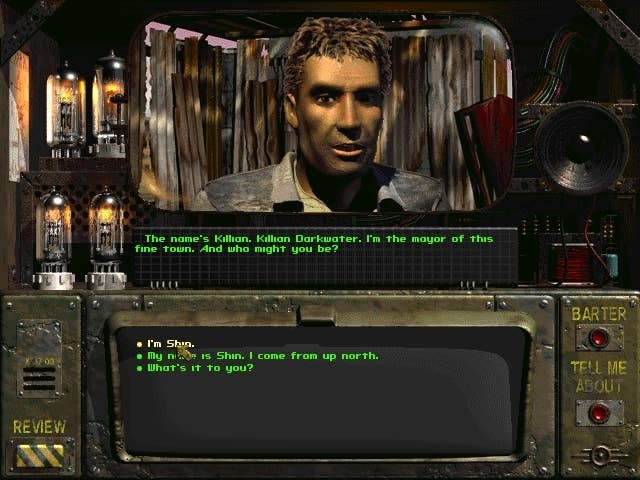
Where Fallout excels is the role-playing. Your agency is the key factor in nearly everything you encounter. Take the small outpost of Junktown. In the city, two characters vie for control of the town: Junktown mayor Killian Darkwater and casino owner Gizmo. Killian is just trying to make Junktown safe for its residents, ensuring further growth for the place established by his grandfather. Gizmo also wants the town to grow, but he feels Killian's upright ways are getting in the way of financial progress. Killian wants incriminating information of Gizmo, while Gizmo wants Killian dead.
If you want a confession of criminal actions from Gizmo, you can plant a bug on him if your Steal skill is high enough. Or you can put a tape recorder in your inventory (or hide it in Gizmo's office), and hope your Persuade skill can coax the confession out of the casino mogul. If you decide to kill Killian for Gismo, you can kill him directly, overdose him with stimpacks, or help Gizmo's other assassin. If you want, you can kill Killian after giving him Gizmo's confession.
The choice of who you help feels pretty straightforward, but there are so many ways to go about navigating the situation, based largely on the skills available to your character. And the outcomes aren't particularly bad in either direction. Junktown grows under the leadership of Killian or Gizmo, but in two different ways. (The cut endings actually had Killian become draconian in his idea of frontier justice, making siding with him actually the worst choice.) Fallout is littered with these types of choices-complex chains of player action and game reaction. Your decisions are more interesting than the modern RPG "pet the kitten or kill the kitten" dichotomy, and Fallout tends to respect the decisions you want to make rather than forcing choices onto you.
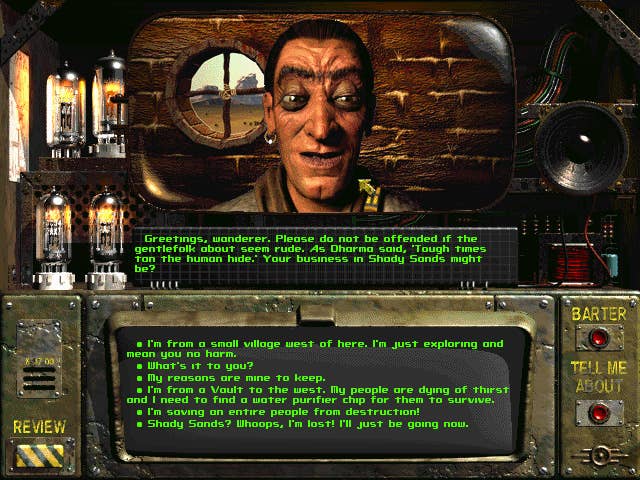
The leeway players have to achieve their singular objectives is also pretty broad. One quest has you trying to save a young girl from some raiders. You can just fight your way through all the raiders, but that's boring. You can fight their leader in one-on-one combat for her release, but he's a pretty hefty dude, so there's a lot of risk there. Maybe instead you stealth kill the guards around her cell and pick the lock. Or perhaps your Speech skill is high enough that with the right dialogue choice you can intimidate the raider leader into releasing her. Or perhaps you can fake like you're the dead father of the raider leader and use that leverage to secure her freedom.
Fallout is a game of "or" and that's what makes it amazing. It culminates with an encounter against the Master, the transformed king behind the super-mutant army. You can just fight and kill the Master, thus saving the wastelands from his mutant army. But you can also decide to detonate the nuclear device hidden within the Master's Vault, or join your foe in his ultimate plan. But one of the best options is to talk the Master down from his scheme . Part of this is through a high Speech skill, but part of it is just having acquired the right information beforehand, showing the Master that his plan-to have mutants replace humanity-can't work. Even at its end, Fallout is about player choice, and the choices available to you are pretty clever.
Fallout was developed internally by Interplay Productions, but the project almost died after the studio acquired the licenses to Forgotten Realms and Planescape Dungeons & Dragons. (Which would be shopped out to BioWare to make Baldur's Gate.) The team convinced the publisher to let them continue making the game; it was a true labor of love.
And that team has touched upon the rest of the industry. Fallout producer and Interplay Productions co-founder Brian Fargo founded InXile Entertainment after Interplay died, which Kickstarter a spiritual successor to Fallout 1 and 2 with Wasteland 2. Director Tim Cain formed Troika Games which artists Leonard Boyarsky and Jason D. Anderson, developing classics like Arcanum: Of Steamworks and Magick Obscura and Vampire: The Masquerade – Bloodlines (another game on this list). Co-director Feargus Urquhart took a portion of the Fallout team and made Black Isle Studios within Interplay, developing Fallout 2, Planescape: Torment, and Icewind Dale. When Black Isle died, that team formed Obsidian Entertainment. And Obsidian recently announced The Outer Worlds, bringing Tim Cain and Leonard Boyarsky back to develop a new action RPG.
Fallout reverberates throughout the industry for what it was to RPGs, in addition to the ultimate paths of the people working on it. It stands tall even today because as gaming presentation has improved with cinematic visuals, vast beautiful worlds, and well-done voice acting, the amount of choices available to players have gotten smaller. We're increasingly stuck with the "Paragon" or "Renegade" options to use terms from BioWare's Mass Effect; trapped within black and white worlds of pure good and pure evil. The original Fallout highlights that RPGs can be more than that, something closer to the pen-and-paper games they're supposed to emulate. That's why, despite a dated visual style and ugly UI, Fallout still stands tall all these years later.
